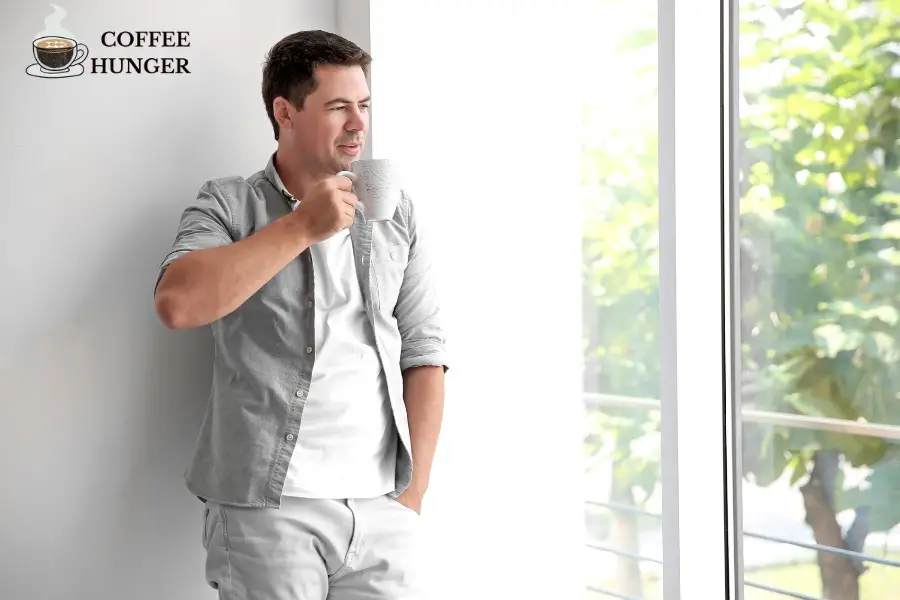Nobody enjoys having a tooth pulled, but occasionally it’s the only way to stop hurting and resume smiling. Even though tooth extractions are considerably more comfortable than you might anticipate, it makes sense that you want something to help you feel calm and relaxed following the surgery. Learn more by reading!
It would help if you refrained from drinking your favourite cup of coffee for at least the first few days so that your mouth can recover correctly. About five days after your tooth extraction, as long as the extraction site continues to heal, you should be able to sip a caffeinated beverage carefully. Your mouth should, after that, be fully healed in two weeks. However, don’t hesitate to call your dentist if you experience more soreness or other problems in your mouth.
Overview of Tooth Extraction:
To make the area around the tooth painful-free, a local anaesthetic will be administered. The tooth will then be pulled out of the gum by your dentist using forceps placed around it.
When Can I Drink Coffee After the Tooth Extraction?
It will be soon that you can resume enjoying your morning caffeine boost. Although every patient recovers at a somewhat different rate, most people can start sipping coffee in moderation five days after an extraction. If everything goes according to plan, your mouth should mostly heal, and any swelling should go down in two weeks.
Understanding the process of Tooth Extraction
A tooth is taken from the socket of this in the gum utilizing this specific procedure. This is carried out by the periodontist, oral surgeon, or general dentist.
-
Types of Extraction
In contrast to surgical, dental extraction, which often involves making an incision into the connective tissue to get access to the tooth to be extracted, simple dental extraction is performed to erase teeth that are visible and accessible. Below, detailed information about both dental extraction types is provided.
-
Simple extraction of teeth
Simple dental extractions entail removing teeth from the mouth that are visible. This technique is frequently performed by general dentists in their dental offices, who numb the area and lessen the patient’s pain by injecting a local anaesthetic.
Dental forceps and an elevator are required to raise the afflicted tooth and grip the visible piece. The tooth is extracted using forceps after being made loose using an elevator. The tooth can then be pushed back and forth until the periodontal ligament finally breaks, and the tooth can be extracted from the alveolar bone. This calls for steadily pressing down on the tooth with a regulated effort.
-
Dental extraction surgery
Dental extraction surgery removes teeth from the mouth that are difficult to reach. This might result from fracturing beneath the gum line or not fully emerging through the gum. A cut must be made into the surrounding connective tissue to access the tooth for extraction. For instance, during the extraction process, it might be necessary to elevate the soft tissues covering the tooth or to use a drill or osteotome to remove some of the adjoining jawbones.
To be removed, the tooth may need to be broken into multiple pieces in many surgical and dental extraction instances.
-
Post-operative Care
A blood clot must form after tooth extraction to stop bleeding and start healing. Since this is the case, we recommend you chew on a gauze pad for 45 minutes following the session. Insert another gauze pad and bite firmly for another 30 minutes if the bleeding or seeping doesn’t stop.
- For 24 hours following surgery, avoid rinsing or spitting.
- Avoid touching the surgery site or socket with your fingers or tongue.
- For the first 48 hours, place ice packs on the face’s surgical side for 20 minutes on and 10 minutes off. (Note: Frozen peas in bags work great.)
- Avoid strenuous activity and refrain from exercising for at least 3–4 days after surgery.
- We advise you to stop smoking for at least five days following surgery. After then, take caution because your typical calorie and fluid intake has been decreased, which could cause you to feel weak or dizzy.
- Warm moist heat applied to the outside of your face over the stiff areas will relax the jaw muscles if they become tight.
- Use a warm salt water rinse after meals for the first week following the first post-operative day to flush out any food or debris that might lodge in the surgical area.
- Drinks that are chilled and soft, simple-to-swallow foods should make up most of your diet. Avoid eating foods with seeds, nuts, rice, popcorn, or anything that could become lodged in your teeth
Does Coffee Impact Recovery?
A blood clot will develop over the gum hole left by an oral surgeon’s removal of your tooth. This blood clot will boost healing by securing the opening against microorganisms.
This could result in a condition known as a dry socket, which can be extremely painful and leave a bad taste in your mouth. After having a tooth extracted, refrain from drinking coffee for a few days to lower your risk of developing a dry socket.
-
Potential Discomfort
It is usual to feel some pain once the anaesthetic wears off. Additionally, you should be prepared for significant swelling and prolonged bleeding for the first 24 hours after tooth extraction. However, you should contact your dentist if the pain or bleeding persists for more than four hours after your tooth is removed.
Risks of Drinking Coffee Too Early
The brewed beverage known as COFFEE is made from coffee beans that have been roasted and then turned into a form suitable for consumption. Our lives now wouldn’t be the same without coffee. Today, it has become customary to drink coffee with breakfast, during tea time, and with dessert. You can work more effectively and stay alert with coffee. Your work capacity has increased. Both hot and cold coffee is offered for consumption. Although robusta and arabica are the most popular, arabica contains more caffeine.
- In coffee, caffeine is a key ingredient. Blood arteries are dilated, and blood pressure is raised. The blood clot, a crucial element in mending the bone following extraction, is dislodged and produces bleeding. Caffeine slows wound healing by preventing the migration of the inflammatory who use coffee after the tooth extraction. This caffeine has an antioxidant property which inhabits.
- The temperature of coffee plays a significant impact in preventing wound healing and producing dry sockets by limiting the proliferation and migration of the keratinocyte and having an inhibitory influence on epithelization and wound healing. If someone consumes hot coffee immediately following surgery to satisfy their caffeine craving, the initial blood clot disappears instantly. It results in a dry socket because the increased temperature at the extraction site raises blood pressure by widening blood vessels and displacing the initial blood clot.
When Can I Drink Coffee Again?
It would be best if you refrained from drinking your favourite cup of coffee for at least the first few days so that your mouth can recover correctly. You’ll be able to gently drink a caffeinated beverage about five days after your tooth has been extracted, provided the extraction site heals day by day.
-
Timeframe for Consumption
Initial 24 hours. Only consume liquids, if possible. But if they don’t satisfy your hunger for solid meals and you prefer soft foods that require little to no chewing, like pudding or oatmeal, choose those instead.
-
Tips for enjoying Coffee Again
Make a less potent cup of coffee. Adding more hot water to a drip coffee or an American-style beverage might make the coffee taste less powerful.
Incorporate some exciting tastes.
Create something beautiful and creamy. Consider a cold brew. Pick a mild roast.
What’s Next for Coffee and Tooth Extraction Recovery?
Warm coffee is often the ideal way for many individuals to begin each day. Before they get their first cup of coffee in the morning, some folks can’t even murmur “hi” to their coworkers! No matter where you stand on the coffee spectrum, you might need to change your routine if you have a tooth extracted. Continue reading to find out what you can drink instead of coffee after tooth extraction in Cambridge and why you should avoid it.
Conclusion
Coffee should be entirely safe to consume two days following the extraction if you have carefully followed all of your dentist’s advice on how to allow your tooth extraction to recover. Since two weeks is the typical time for your tongue to recover fully, you can wait that long if you want to be on the safe side.
Many of us like getting our morning caffeine dose. Black coffee, a vanilla latte, or your typical iced thin hazelnut macchiato with an additional shot, light ice, and no whip are all acceptable choices. But after getting your tooth extracted, you might need to put your order on hold for a few days.
Even though it’s a relatively common and straightforward dental operation, you still need to take good care of yourself and adhere to your dentist’s recommendations to recover. So, is it okay to drink coffee after having a tooth pulled? The response is that you shouldn’t. To get through the drive-through coffee queue quickly, you should aid your mouth in its quick recovery.
FAQs
1. When can I drink coffee after wisdom tooth extraction
Ans: Although every patient recovers at a somewhat different rate, most people can start sipping coffee in moderation five days after an extraction. If everything goes according to plan, your mouth should mostly heal, and any swelling should go down in two weeks. You can then resume consuming your usual amount of coffee at that point.
2. When can I drink warm coffee after tooth extraction?
Ans: It would be best if you refrained from drinking your favourite cup of coffee for at least the first few days so that your mouth can recover correctly. You’ll be able to gently drink a caffeinated beverage about five days after your tooth has been extracted, provided the extraction site heals day by day.
3. When can I drink hot coffee after tooth extraction?
Ans: The anaesthetic usually fades off with some pain felt after that. Additionally, the first 24 hours after a tooth extraction will see significant swelling and persistent bleeding. This could result in a condition known as a dry socket, which can be extremely painful and leave a bad taste in your mouth.
4. Can I drink iced coffee after tooth extraction?
Ans: It would be best if you refrained from drinking your favourite cup of coffee for the first few days, at the very least, to let your mouth recover correctly. After your tooth has been extracted, you should be able to carefully sip a caffeinated beverage about five days later as long as the extraction site continues to heal.
Also Read:
What is Sunrise Batch Coffee at Dunkin?
How Much Caffeine Is in 2 Shots of Espresso?
How Soon can You Drink Coffee after Taking Omeprazole?

